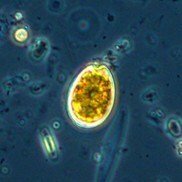Friday, 6 February 2026
UNSW researchers crack code for plant-based cheese
A plant-based cheese made from pea protein and polysaccharides, not only stretches and melts but also delivers essential nutrients like calcium and vitamin D A team of chemical engineers at…

A plant-based cheese made from pea protein and polysaccharides, not only stretches and melts but also delivers essential nutrients like calcium and vitamin D
A team of chemical engineers at UNSW Sydney has achieved a breakthrough in plant-based food innovation by creating a cheese alternative that melts, stretches, and browns like its dairy counterpart, without using a single drop of cow’s milk.
Led by Professor Cordelia Selomulya from the UNSW School of Chemical Engineering, the team has developed a new method for layering plant proteins with naturally occurring polysaccharides, complex sugars and dietary fibres to replicate the texture and structural properties of traditional cheese. The result: a plant-based cheese that doesn’t just look like the real thing, but behaves like it under heat and cooking.
“Colours and flavours are the easy part,” said Prof. Selomulya, who has been working on plant-based food textures since 2019. “But replicating the structure that pulls of melted cheese, or the juicy mouthfeel of meat, is the real challenge.”
While plant-based dairy and meat alternatives have been available for years, many still fall short when it comes to texture, heat resistance, and nutritional delivery. The UNSW team’s innovation specifically addresses these shortcomings by creating stable, flexible protein-carbohydrate networks that mimic the sensory experience of animal-derived foods.
Their latest prototype, a plant-based cheese made from pea protein and polysaccharides, not only stretches and melts but also delivers essential nutrients like calcium and vitamin D. The researchers have also pioneered a technique to ‘microencapsulate’ fat-soluble nutrients and stabilize water-soluble ones, ensuring that nutritional value is retained even through high-heat cooking or freeze-thaw cycles.
“We’ve also made progress in preserving key nutrients, which is something most commercial products don’t do well,” added Dr Yong Wang, a lead investigator on the project.
The process is scalable and does not require specialised equipment, making it ideal for commercial production. The team has already secured a provisional patent and is now seeking industry partners to bring their innovation to market.
With plant-based eating on the rise and consumers demanding better alternatives that don’t compromise on taste, texture, or health, this development could mark a major milestone in the future of sustainable, animal-free food.
Technology
Australia Approves Commercial Release of GM Purple Tomato
Feb 06, 2026 | Australia
Detmold Group Reports Progress on Emissions Reduction, Circular Packaging Goals
Feb 05, 2026 | Australia
FAO on Balancing Climate Urgency and Food Safety in Emerging Agrifood Technologies
Feb 05, 2026 | Food Security
Food Testing
AFNOR International Eyes Global Food Safety Growth with HACCP Group Takeover
Feb 04, 2026 | Australia
Incheon National University researchers uncover hidden toxin risks during nutrient-starved algal blooms
Feb 02, 2026 | Food Safety and Testing
How audit-led approaches are reinforcing trust in retail food safety
Feb 02, 2026 | Food Safety and Testing
More Popular
Fertility Meets Farm-to-Table Dining with Launch of ‘The Fertility Table’ in India
Feb 06, 2026 | Company News
Australia Approves Commercial Release of GM Purple Tomato
Feb 06, 2026 | Australia
Alternative Proteins Could Add €111 Billion Annually to EU Economy by 2040, Study Finds
Feb 06, 2026 | Europe






